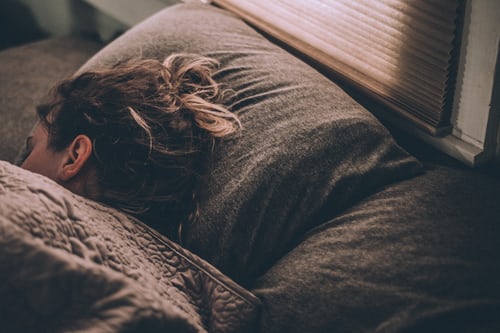
How much sleep and with what pattern is suitable? Lack of sleep and disruption of your bedtime routine can have a detrimental effect on your daily activities. Insomnia, specifically, affect millions of individuals global, triggered by psychological and physical stress, amongst other causes. In order to fix this annoyance, you need to fully understand it. As such the information below has been adapted to include everything you need to know about it.
What is Insomnia?
This is a sleep disorder, familiar to many, in which a person finds it difficult to fall asleep or stay asleep. In some cases, people find it difficult to get back to sleep when they wake up too early. These can be classified according to their duration, cause, and severity. These types of disorders include:
Temporary – non-recurring, lasting less than a week
Acute – lasts for several weeks.
Chronic – regularly disrupts your sleep patterns three times a week and may last for months, even years.
Sleep onset – difficulty falling asleep
Sleep maintenance – difficulty staying asleep for long periods of time
Signs and Symptoms of Insomnia
This condition is not only marked by difficulty sleeping, as many people suspect. The following are also symptoms of insomnia:
- Straining to fall asleep
- Failure to maintain or stay asleep all of your bedtime (nighttime)
- Often waking up much earlier than usual and having trouble getting back to sleep
- Feeling low after sleep or like you have not slept at all
Sleeping for a significant duration is important for everyday productivity. Therefore, if you do not, you’ll feel tired most of the day, experience mood swings (irritability), and have trouble being productive. These are all consequences and symptoms of this sleep disorder.
What causes insomnia?
1) Poor sleeping habits – Going to bed and waking up at irregular times, napping continually, and using your bed for other activities like work hamper your sleep cycle.
2) Stress – Worries about issues like finances or your job can cause your mind to stay active all night, making it difficult to sleep
3) Anxiety – With anxiety, you are continually having worries. This makes it hard for you to sleep.
4) Depression – People suffering from depression tend to daydream, and the situation worsens at night, leading to increased risk of insomnia. In addition, people with this condition have low energy levels, so they’re less active during the day. This often results in a lower sleep drive, making it difficult to fall or stay asleep.
5) Lack of exercise – Exercise helps improve your overall body health and function. Failure to do so reduce the quality of your sleep. We need less sleep as we age, but to attain that good quality sleep we still need exercise, so it is vital to adapt as we age. If you find you cannot run marathons or hit the gym anymore, find low-impact exercises that help you use your muscles, balance your hormones, and improve your mental health, all of which promote better sleep. From yoga and pilates to golf- that senior tee age seventy so there are activities that can be enjoyed at a later date. So if you can still get out and move your body, it will really help you when your head hits the pillow at night.
6) Illness – Conditions such as acid reflux and sleep apnea (disordered breathing during sleep) cause difficulty sleeping at night as a result of discomfort.
7) Medication – Some medicines have this sleeplessness effect as a side effect. If you have trouble sleeping after taking certain prescriptions, you may need to seek a doctor’s opinion.
Treatment
Cognitive behavioral therapy (CBT)
Sometimes referred to as CBT-I, this therapy is ideal treatment for the chronic degree of this disorder. It works by helping you discover and analyze the behaviors and thoughts that are causing or exacerbating your sleep disturbances. Then, with the help of a therapist, you can replace or control the problem. This can be done through sleep restriction, hygiene and environmental improvements. Additionally, your doctor may recommend stimulus control therapy or relaxation training to help you sleep better.
Lifestyle changes
In order for you to beat this condition, you need to improve the causative factors in the following ways:
- Regularly wake up at the same set time
- Do lots of exercises and stretches
- Avoid eating before bed to avoid discomfort as a result of digestion
- Upgrade your sleeping space for comfort
- Practice relaxation techniques that reduce stress, such as meditation and deep breathing
Drug
A medical professional will first diagnose the reason for your sleep difficulties. In some cases, you may must get medicine to help you sleep better, such as sleeping pills and antidepressants. This depends on the severity and reason for your condition.
Final thoughts
Deviations in your ability to sleep are something you can try to correct through a better lifestyle. However, if you don’t improve after correcting possible causes, it’s advisable to see a doctor for treatment. Don’t just prescribe sleeping pills for yourself, they can be addictive.











